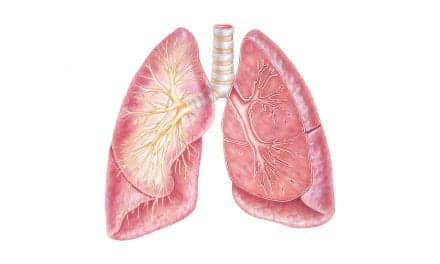Motivational interviewing, a goal-oriented, client-centered counseling style for eliciting behavior change used in health coaching, is a feasible intervention that may reduce short-term readmissions for COPD patients, according to a study presented at ATS 2016. The study is the first available randomized study to demonstrate the feasibility and effectiveness of the intervention.
The 215 study participants were randomized to either treatment-as-usual (control) or health coaching, which consisted of at least one session in the hospital and one session post-discharge followed by weekly sessions over the phone for three months and monthly thereafter. The total length of follow-up was one year.
“We tested an intervention that primarily aimed to promote patient activation and mindful communication, two critical and perhaps underrated aspects of care that we firmly believe are at the heart of practicing the art of medicine,” said lead author Roberto Benzo, MD, MS, of the Mayo Clinic in Rochester, Minnesota. “This coaching style emphasizes autonomy and choice in what the patient wanted to work on. It is a process that happens with a patient; it is not something the coach does to a patient.”
There was a significant reduction in COPD-related readmission among patients who received health coaching. Readmission was reduced by 7.5 percent (absolute risk reduction) in the first month and by 11 percent at 3and 6 months post-discharge, the level at which reduction rates peaked. Though the researchers are unable to account for the exact reason for the drop-off after six months, Dr Benzo noted that there may be some advantage to additional sessions of health coaching to enhance patients’ motivation and self-management.
An additional outcome of the research was increased participation in pulmonary rehab in both groups. The increase was higher than had been previously reported – perhaps a result of the level of attention patients received in the study. “Only individuals in the intervention group showed decreased hospitalization suggesting that the mindful attention – not any attention – like that received in health coaching may matter; health coaching may motivate people to behaviors like attending pulmonary rehab that translate into the improvement of “hard” outcomes like hospitalizations,” Dr Benzo added.
While still larger studies are needed to further test implementation of health coaching among COPD patients, “this is a seminal study that addresses the knowledge gap on interventions that decrease short-term re-hospitalizations and is translatable to other chronic diseases,” Dr Benzo concluded.










